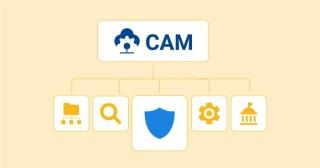Litera Governance Solutions and the Five Pillars of CAM: A Webinar
Law firms operate in distributed environments. Their employees are distributed geographically, and the tools and data they use are often spread across multiple systems containing critical documents and hosting important collaborations and processes.
Information Governance is the set of tools and processes used to manage that data and ensure that access to the firm's data is available to those who need it as part of their workflows while restricting it to authorized users only.
Litera's Governance Solutions include CAM, a Software-as-a-Service platform (SaaS) for the adoption and governance of multiple collaboration systems. It allows organizations to provision, classify, protect, manage, and govern data, mitigating data chaos and reducing risks related to privacy and cybersecurity.
Keith Lipman, the former CEO of Prosperoware (acquired by Litera in 2022), and Alec Jachwak, Customer Success Manager, Litera Governance, demonstrated CAM and outlined what Litera calls the "Five Pillars of CAM" in a recent webinar.
Lipman began the webinar with an overview of how the world has changed for law firms. Firms today might operate across multiple systems, including document management, matter management, and collaboration systems. These systems include workspaces, channels, and sites and include products such as Microsoft OneDrive and SharePoint, FileShare, iManage, NetDocuments, and others.
CAM is the missing link that allows law firms to manage their work efficiently and securely across those platforms. Lipman outlined the Five Pillars of CAM – the five key sources of value that CAM brings to collaborative processes and workflows:
- Provisioning refers to how teams can automate the creation of workspaces and initiates all the tools the firm will need to manage a new matter
- Classifying is the automated generation of metadata that brings order and structure to the data within a matter, and a consistent work environment for users
- Protecting data in CAM provides the right amount of security by establishing access privileges, monitoring data for abnormal activity, and providing data loss prevention tools
- Managing is the process by which the movement and synchronization of data between systems and any reporting are managed
- Governing allows administrators to grant and remove access to systems at the project or matter level, maintain ethical walls between different systems and data sets, and manage data disposition upon the matter's conclusion
In this webinar, Lipman addressed the five pillars and the importance of each, and then Jachwak provided a demonstration that shows each of the five pillars in action.
The webinar provides an excellent introduction to CAM for firms interested in executing a better Information Governance strategy. The webinar, "The Five Pillars of CAM," is available on demand.




